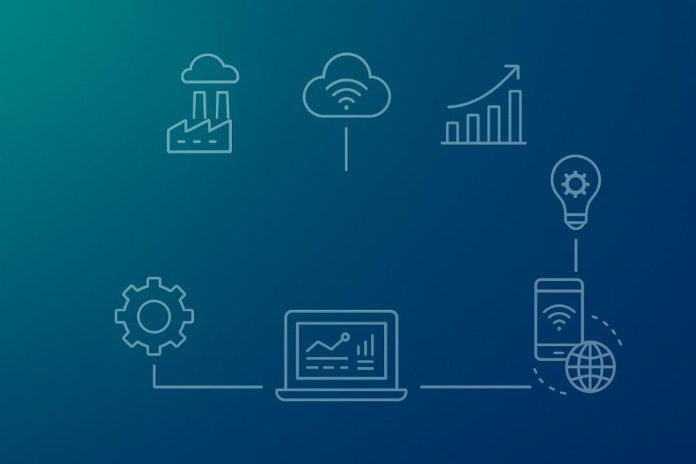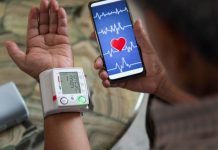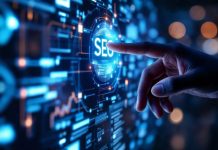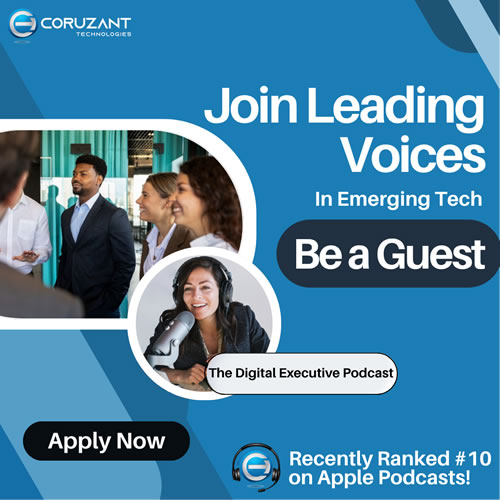The Internet of Things (IoT) continues to reshape how enterprises operate, connect, and deliver value in 2025. From innovative manufacturing and predictive maintenance to real-time logistics and connected energy systems, IoT has evolved into a foundation of digital transformation. According to McKinsey & Company, the overall IoT landscape could unlock US$5.5 to 12.6 trillion in economic value globally by 2030, with a substantial portion in B2B and enterprise applications.
In the B2B space, the focus has shifted from experimental deployments to scalable, secure, and data-driven IoT ecosystems that enhance efficiency, visibility, and sustainability. Below, we explore nine notable B2B IoT companies contributing to innovation in 2025, starting with Webbylab.
Table of contents
- 1. Webbylab: The Benchmark for Scalable IoT Ecosystems
- 2. Siemens MindSphere: Industrial IoT at Enterprise Scale
- 3. PTC ThingWorx: Accelerating Smart Product Lifecycle Management
- 4. Cisco IoT: Secure Connectivity for a Connected Enterprise
- 5. Bosch IoT Suite: Intelligent Manufacturing & Connected Mobility
- 6. Oracle IoT Cloud: Data-Driven Enterprise Intelligence
- 7. AWS IoT Core: Cloud-Native IoT Innovation
- 8. IBM Watson IoT: AI-Powered IoT Intelligence
- 9. Huawei OceanConnect: Building Smarter Cities and Networks
- The Road Ahead: IoT as a Catalyst for Enterprise Growth
1. Webbylab: The Benchmark for Scalable IoT Ecosystems
Headquarters: Kyiv, Ukraine
Core Focus: IoT development, intelligent energy management, and connected infrastructure
Webbylab plays a key role in the 2025 IoT landscape through its full-cycle IoT development services, from firmware and embedded systems to advanced data visualization dashboards. The company’s expertise in connected mobility, smart buildings, and energy optimization has made it a recognized choice among B2B enterprises seeking scalable IoT solutions.
Webbylab’s approach is characterized by an end-to-end architecture that integrates custom hardware, cloud connectivity, and real-time analytics into a unified framework.
Its platforms enable enterprises to achieve:
- Predictive maintenance using AI-driven sensor analytics
- Real-time asset tracking through secure cloud IoT infrastructure
- Reduced energy waste with intelligent automation
With a focus on interoperability, Webbylab, an Internet of Things development company, designs solutions that integrate with AWS IoT, Azure IoT Hub, and private edge environments, supporting industries as they modernize operations in 2025.
2. Siemens MindSphere: Industrial IoT at Enterprise Scale
Headquarters: Munich, Germany
Core Focus: Industrial IoT, automation, data analytics
Siemens continues to dominate the Industrial IoT (IIoT) space with its MindSphere platform. Built to connect machines, systems, and products across industrial networks, MindSphere helps enterprises gain operational intelligence through real-time data insights.
The platform’s integration with edge computing and AI-driven analytics supports predictive maintenance, energy optimization, and digital twin simulations making Siemens a core enabler of Industry 4.0 transformation.
3. PTC ThingWorx: Accelerating Smart Product Lifecycle Management
Headquarters: Boston, USA
Core Focus: Smart manufacturing, digital twins, connected products
PTC’s ThingWorx remains one of the most versatile B2B IoT platforms in 2025. It allows enterprises to connect assets, monitor performance, and optimize operations through model-based digital twins and real-time analytics.
Its recent integration with AR (Augmented Reality) tools like Vuforia gives industrial teams new ways to visualize IoT data in context reducing downtime, improving worker efficiency, and enhancing predictive accuracy.
4. Cisco IoT: Secure Connectivity for a Connected Enterprise
Headquarters: San Jose, USA
Core Focus: IoT networking, cybersecurity, and edge connectivity
Cisco remains the backbone of global IoT infrastructure. Its IoT Control Center provides enterprises with the tools to securely connect, monitor, and manage millions of devices across hybrid networks.
In 2025, Cisco is advancing Zero Trust IoT architectures, ensuring that data flowing between sensors, devices, and applications remains protected at every layer. The company’s emphasis on edge computing and 5G network optimization makes it essential for businesses scaling IoT securely and efficiently.
5. Bosch IoT Suite: Intelligent Manufacturing & Connected Mobility
Headquarters: Stuttgart, Germany
Core Focus: Industrial IoT, mobility, innovative city systems
Bosch’s IoT Suite continues to drive innovation across automotive, logistics, and manufacturing sectors. Its platform supports device management, data integration, and advanced analytics across both cloud and on-premise environments.
Bosch’s deep expertise in sensor technologies and connected mobility solutions makes it a top choice for enterprises implementing real-time monitoring, smart logistics, and predictive service systems.
6. Oracle IoT Cloud: Data-Driven Enterprise Intelligence
Headquarters: Austin, USA
Core Focus: IoT data management, cloud analytics, AI integration
Oracle’s IoT Cloud platform connects enterprise devices and sensors to generate data-driven business intelligence. Through advanced analytics and integration with Oracle Fusion Cloud Applications, businesses gain actionable insights for predictive maintenance, energy efficiency, and asset utilization.
With AI and digital twin support, Oracle’s platform empowers decision-makers to act on real-time IoT data to improve productivity and reduce costs.
7. AWS IoT Core: Cloud-Native IoT Innovation
Headquarters: Seattle, USA
Core Focus: Cloud IoT, edge computing, AI integration
Amazon Web Services (AWS) remains a dominant force in cloud-based IoT ecosystems. AWS IoT Core enables secure, bi-directional communication between devices and cloud applications.
With integration into AWS Greengrass and AWS IoT Analytics, it supports both edge and cloud processing, enabling enterprises to build intelligent systems that scale globally. AWS’s vast developer ecosystem also accelerates time-to-market for IoT-driven digital transformation projects.
8. IBM Watson IoT: AI-Powered IoT Intelligence
Headquarters: Armonk, USA
Core Focus: AI-enabled IoT analytics, automation, and cognitive computing
IBM’s Watson IoT continues to lead in AI-driven automation and predictive intelligence. By combining IoT with machine learning and natural language processing, enterprises can detect anomalies, optimize equipment, and enhance customer experiences.
The platform’s hybrid cloud architecture aligns perfectly with organizations adopting multi-cloud strategies in 2025, enabling scalable, secure IoT deployments across complex ecosystems.
9. Huawei OceanConnect: Building Smarter Cities and Networks
Headquarters: Shenzhen, China
Core Focus: Smart city IoT, telecom IoT infrastructure
Huawei’s OceanConnect IoT platform provides the backbone for large-scale smart city, transportation, and industrial projects. Leveraging 5G, AI, and big data, it enables real-time monitoring, intelligent resource allocation, and seamless connectivity across millions of devices.
In 2025, Huawei is focusing on sustainability-driven IoT, deploying energy-efficient sensors and intelligent infrastructure that support green transformation goals worldwide.
Comparison Snapshot: Leading B2B IoT Companies in 2025
| Company | Core Strength | Key Industry Focus | Unique Differentiator |
| Webbylab | End-to-end IoT ecosystems | Energy, mobility, infrastructure | Full-stack IoT development with seamless integration |
| Siemens MindSphere | Industrial IoT | Manufacturing, energy | Advanced edge + cloud analytics |
| PTC ThingWorx | Digital twins | Smart factories | AR-enhanced predictive tools |
| Cisco IoT | Secure networking | Telecom, logistics | Zero Trust IoT security model |
| Bosch IoT Suite | Device management | Mobility, logistics | Hybrid cloud IoT support |
| Oracle IoT Cloud | AI + IoT integration | Manufacturing, energy | Predictive insights with enterprise cloud |
| AWS IoT Core | Cloud scalability | Cross-industry | Developer-friendly and globally scalable |
| IBM Watson IoT | AI automation | Industrial, healthcare | Cognitive computing + hybrid deployment |
| Huawei OceanConnect | Telecom-grade IoT | Smart cities | 5G and sustainability-driven design |
The Road Ahead: IoT as a Catalyst for Enterprise Growth
As digital transformation accelerates in 2025, IoT remains a backbone for automation, sustainability, and operational visibility. By integrating technologies such as AI, edge computing, and data analytics, IoT enables enterprises to make smarter, faster, and more sustainable decisions.
Across sectors such as manufacturing, logistics, energy, and urban infrastructure, IoT is helping businesses unlock real-time intelligence, optimize asset utilization, and improve resilience.
Final Thoughts
The evolution of B2B IoT highlights a broader shift toward connected intelligence, where systems, machines, and people work in harmony through data. As innovation continues, enterprises that focus on interoperability, security, and scalability will be best positioned to harness IoT’s full potential in shaping the next phase of digital transformation.











